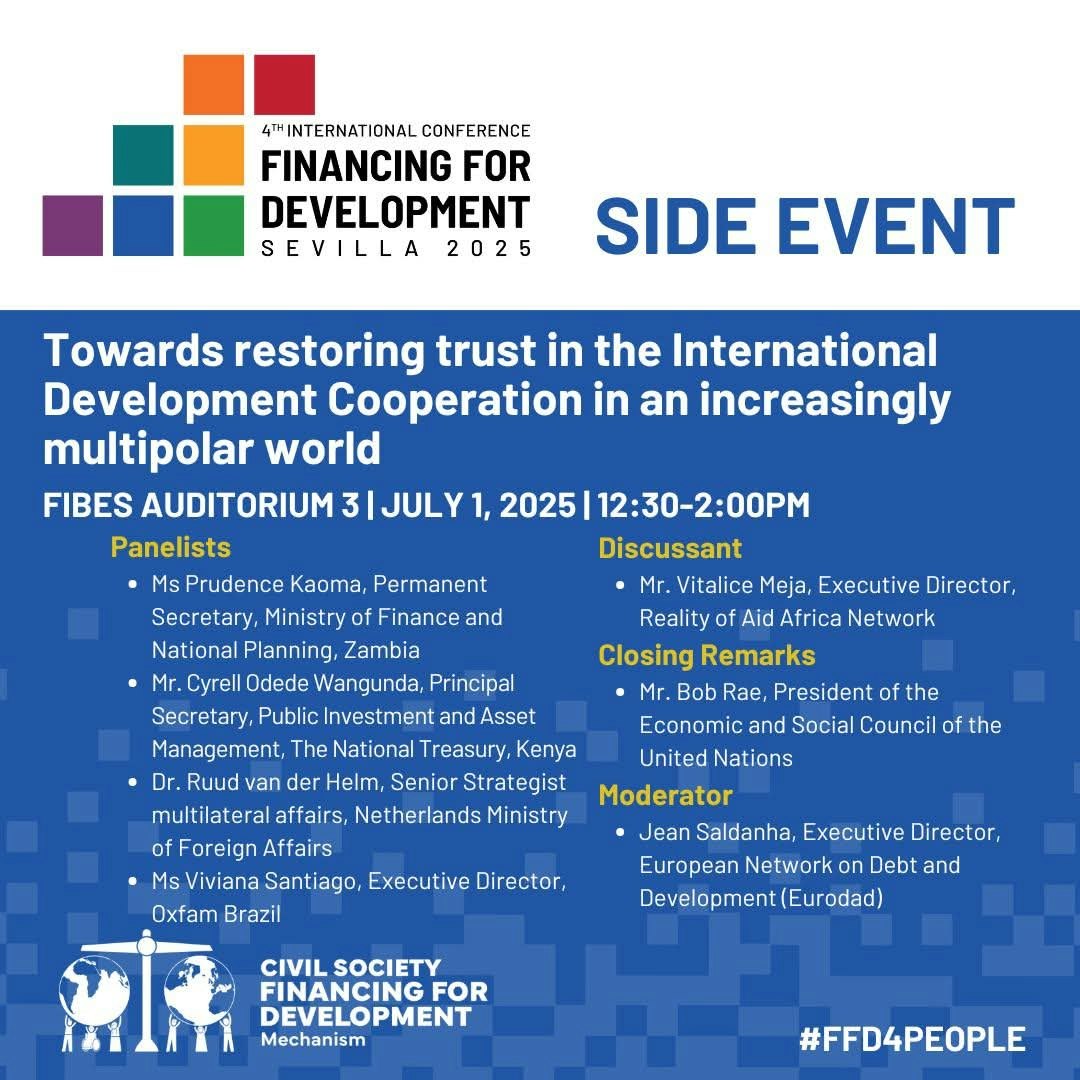Towards restoring trust in the International Development Cooperation in an increasingly multipolar world
AUDITORIUM 3 | TUESDAY 1 JULY | 12:30PM - 2:00PM

Speakers:
Moderator
Jean Saldanha, Executive Director, European Network on Debt and Development (Eurodad)
Panelists
Ms Prudence Kaoma, Permanent Secretary, Ministry of Finance and National Planning, Zambia
Mr. Cyrell Odede Wangunda, Principal Secretary, Public Investment and Asset Management, The National Treasury, Kenya
Dr. Ruud van der Helm, Senior Strategist multilateral affairs, Netherlands Ministry of Foreign Affairs
Ms. Viviana Santiago, Executive Director, Oxfam Brazil
Discussant
Mr. Vitalice Meja, Executive Director, Reality of Aid Africa Network
Closing Remarks
Mr. Bob Rae, President of the Economic and Social Council of the United Nations
Abstract
Five years away from the 2030 deadline for achieving the Sustainable Development Goals (SDGs), several major rich countries have announced significant reductions to their aid budgets. This has resulted in dramatic impacts for people on the ground. In the post-FfD4 context it is crucial to reimagine the future of development cooperation. An injection of trust through the right mix of political action and reforms is needed. This session will provide a forum for dialogue on steps needed to unlock the transformative potential of development cooperation. It will discuss key issues regarding ODA quantity, quality and governance.
Description
Five years away from the 2030 deadline for achieving the Sustainable Development Goals (SDGs), the number of people living in extreme poverty is higher than it was four years ago. According to recent figures, at least 730 million people face hunger and approximately 333 million children live in extreme poverty. Efforts to achieve the SDGs are seriously off track, with profound implications for the developing world. 2025 marks a retreat from the long-standing 0.7% Gross National Income/Official Development Assistance (ODA) target, which to date has only been achieved by six donors. Several major rich countries have recently announced significant reductions to their aid budgets, raising serious concerns about the future of global development cooperation and commitment to the principles of aid effectiveness.
Still, international development cooperation (IDC) remains critical to an effective response to an interlinked polycrisis. To help restore confidence in international development cooperation between now and 2030, a change in trajectory of how development commitments are delivered at both national and global levels is essential. Moreover, an injection of trust through the right mix of political action and reforms is needed. As part of this, and going forward, a greater role of the United Nations in the decision-making process of what counts as ODA and how this is monitored is also essential, so a more democratic and inclusive platform is crafted.
This session will provide a forum for dialogue on steps needed to restore the trust needed to unlock the transformative potential of development cooperation. It aims to bring together members from the African Group, the Group of 77+China, wealthy countries, and civil society organizations to discuss how to reimagine the future of development cooperation in the post FfD4 context.